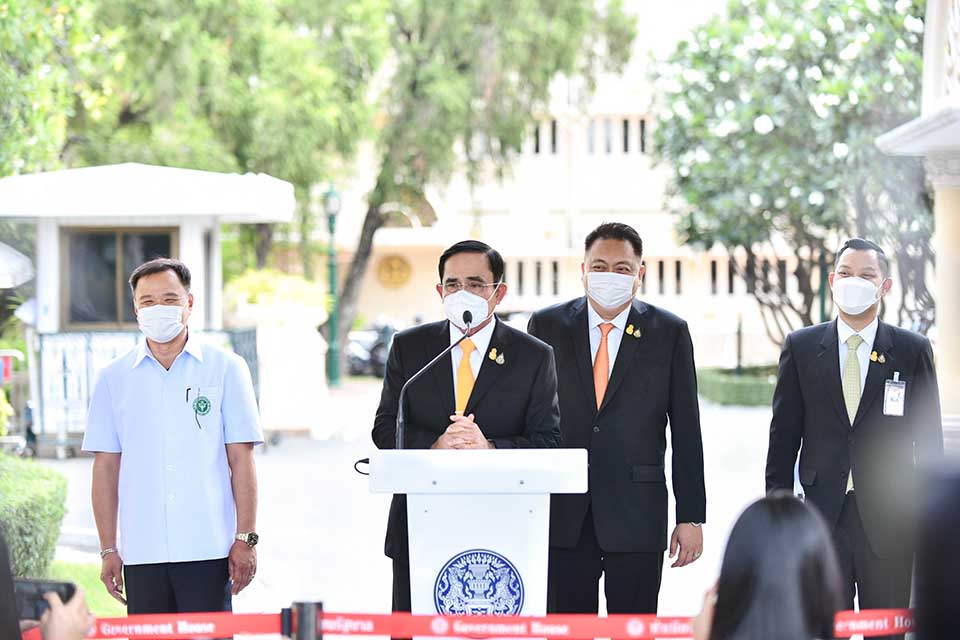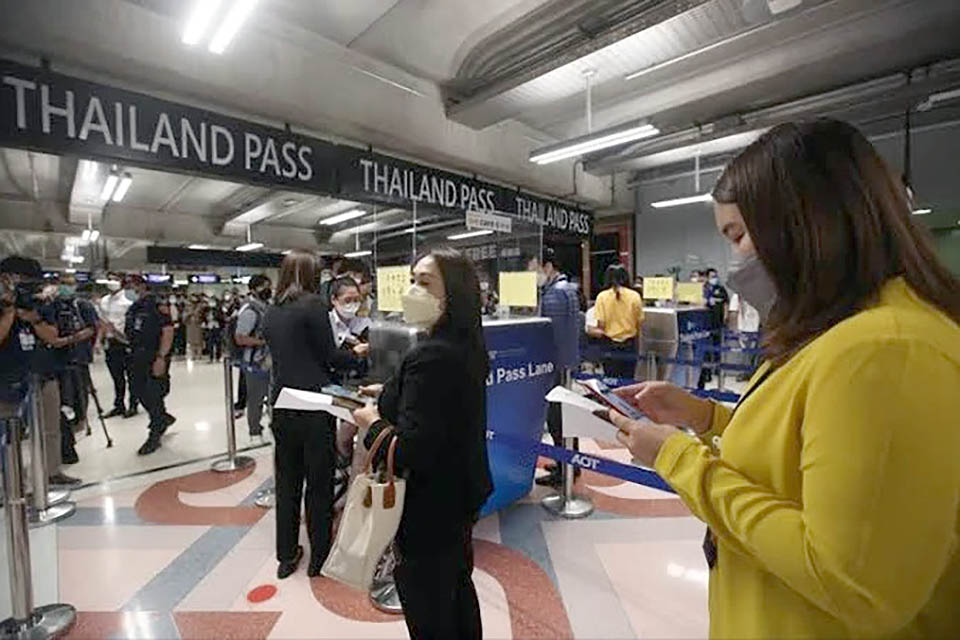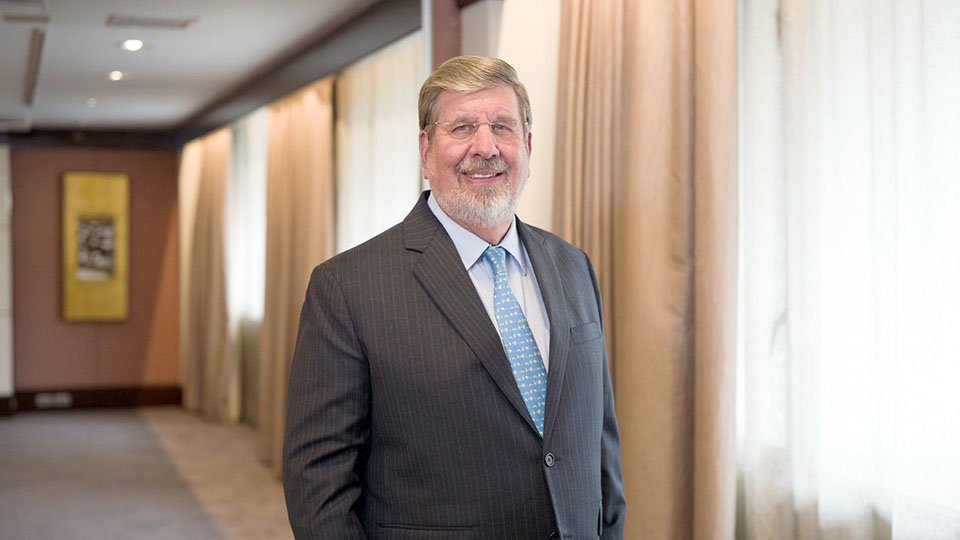
The Center for Covid-19 Situation Administration on Friday rejected a proposal to scrap the Thailand Pass system, opting only to drop on-arrival coronavirus tests and minimum hotel stays.
The typically conservative Public Health Ministry had proffered to the CCSA to go beyond dropping on-arrival RT-PCR tests – and the necessary one-night’s quarantine hotel stay – shorten quarantine times for unvaccinated tourists and end the buggy Thailand Pass QR code system for nearly all tourists.
Instead, the committee agreed to kill off the “Test & Go” and “sandbox” entry schemes, which required RT-PCR tests and pre-paid hotel stays of one or five nights, respectively. As of May 1, vaccinated tourists only will be required to register via Thailand Pass with their passports, vaccination certificate and proof of US$10,000 pre-paid insurance.
No on-arrival tests of any sort – RT-PCR or antigen – will be required for either vaccinated or unvaccinated travelers. Vaccinated tourists are encouraged to take an antigen self-test if they develop Covid-19-like symptoms and during their stays. Arrivals immediately can travel anywhere in the country.
Unvaccinated tourists will have to pre-pay five nights in a government-certified quarantine hotel and take a PCR test on the fourth day. If they test negative, they can check out on the fifth day and travel anywhere.

While a major step forward, the CCSA’s failure to do away with all restrictions disappointed huge swaths of the public, as well as the tourism, hospitality and nightlife industries, which have insisted that needlessly conservative health rules are hobbling the economy, especially as rival tourism destinations in Southeast Asia remove all controls.
But the CCSA, headed by former general and Prime Minister Prayut Chan-o-cha, who has no experience in managing public health emergencies, held on to the burdensome Thailand Pass system out of unfounded fear that reopening would cause coronavirus cases in Thailand to soar.
Fewer than 1% of arriving tourists in April and March tested positive for Covid-19 upon arrival.
Public Health Minister Anutin Charvirakul said before the meeting that his intent was to relax all existing Covid-19 restrictions to have the country move forward and give people a better chance to earn an income. This includes fully reopening the economy – including pubs, clubs and nightlife – earlier than the original July 1 target.
But Anutin – who will say anything to make the public happy as he has aspirations of being Thailand’s next prime minister – doesn’t have a vote on the CCSA and is subject to Prayut’s whims.

The changes agreed on today are expected to take effect May 1, pending Cabinet approval and publishing in the Royal Gazette.
The tourism and hospitality industries clearly have had enough of the over-the-top restrictions, especially considering the government admits that 95% of all Covid-19 cases now don’t require hospitalization.
Earlier this week, William Heinecke, chairman of Minor International, urged Prayut in an open letter to kill Thailand Pass system and Test & Go.
In addition to the tourism-related changes, the CCSA upgraded the color scheme for all provinces, doing away with all orange zones, leaving only yellow or blue zones, which allows restaurants across the country to sell alcohol again, now until midnight.
Alcohol sales and closing times are subject to the whims of provincial governors.
The original version of this story appears in the Bangkok Herald, a Pattaya Mail partner.
 |
 |
 |





